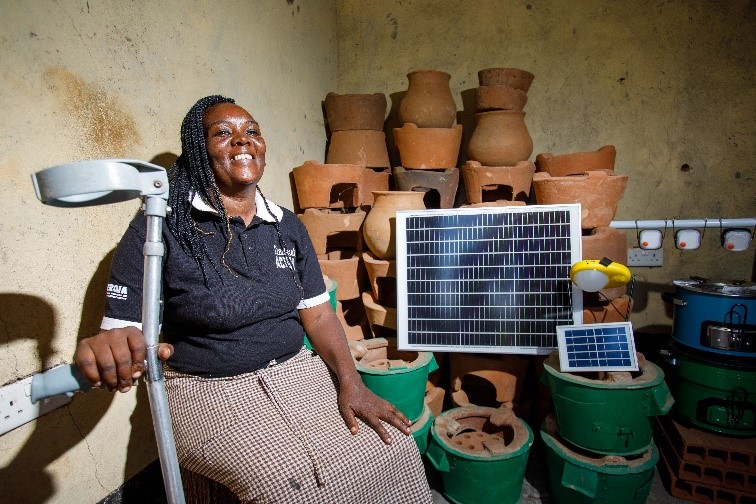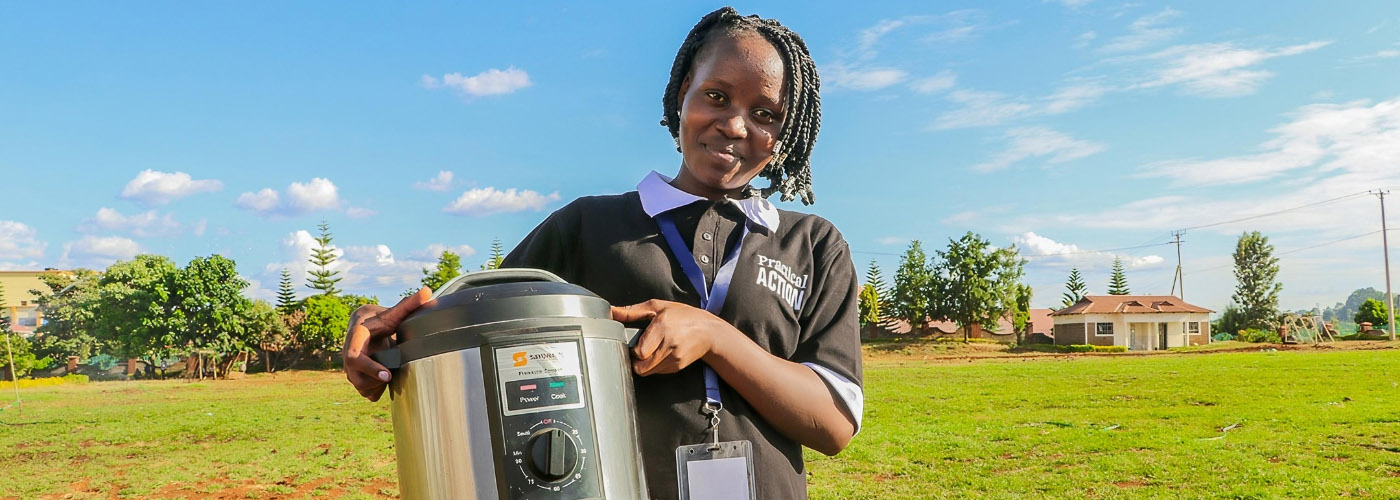By Practical Action Kenya
Practical Action’s third phase of the ENERGIA supported and Sida funded Women in Energy Enterprises in Kenya (WEEK 3) Project supports women energy entrepreneurs in Meru, Embu and Tharaka Nithi Counties to run profitable businesses in energy technologies or Productive Use of Energy (PUE). The project also supports the national and county governments and renewable energy companies to mainstream gender in their policies, programs, operations and budgets. Read on to learn about the highlights of the second project year.
Supporting women entrepreneurs
The WEEK 3 project supports 402 women entrepreneurs – 338 in energy enterprises and 64 in PUE – via training, mentorship, access to finance and market linkages. These interventions have led to the sale of 112,769 modern clean energy technologies benefitting 581,610 consumers in last-mile communities. This is significant in a region affected by overexploitation of forests for firewood and charcoal for cooking and productive use. Mentorship has also strengthened the entrepreneurs’ resilience and empowerment, with 255 entrepreneurs reporting they are now making major household decisions, 152 making decisions on how to spend income from business, 99 spending income earned on themselves, 89 reporting to have confidence in their ability to negotiate with ecosystems actors.
Towards gender equality in Counties
In the project area, WEEK 3 lobbies the County Governments for political goodwill and commitment to the gender and energy agenda. The effects of these lobby endeavors are already tangible in two out of three project counties. Embu County committed to develop a gender-sensitive County Energy Plan (CEP) and made budgetary commitments to supporting women energy entrepreneurs, for example by co-financing the Embu energy exhibition and a dedicated market space. Because of the project’s interventions, Meru County now waivers county fees on project marketing interventions.
Gender equality in government bodies
As part of the gender transformative approach in the project, Practical Action assessed the progress in institutionalizing gender equality in programs, services, processes, and budgets in the Semi-Autonomous Government Agencies (SAGAs). The report documenting evidence of gender mainstreaming in the energy SAGAs was generated and disseminated widely. The WEEK 3 project has also sensitized and supported the SAGAs, the Ministry of Energy and Petroleum and two Renewable Energy companies to develop Gender Action Plans including development of gender policies, sensitization of top leadership and appointment of gender champions.
Impact by numbers
- 298 employees paid by women entrepreneurs supported by the program
- 112,769 modern clean energy technologies benefitting 581,610 consumers in last-mile communities.
- Over $27,000 in credit secured by WEEs from linkages to financial institutions while $4,200 mobilized from Village Savings and Loans Associations (VSLAs) formed by WEEs.
- 7 partnerships with clean energy companies and associations created, to leverage gender, energy and climate actions
Jecinta Maina’s journey
Meet Jecinta Maina, one of the women entrepreneurs from Embu County and a person living with disability.

The WEEK 3 project trained Jecinta how to maintain accurate business records and manage her business finances. Additionally, Jacinta is being mentored and strengthened to build confidence and agency in negotiating with ecosystem actors. Her marketing abilities have particularly improved, enabling her to attract and retain more customers.
Jecinta has also diversified into cleaner and efficient modern cook stoves and solar products in addition to the locally manufactured improved cookstoves with clay inlay that she was selling before WEEK 3 project.
“I thank Practical Action’s WEEK3 project which has empowered me to be a great entrepreneur and being financially independent. I can feed my family and educate my kids, Jecinta says proudly. “It’s proof to society that disability is not inability”.







